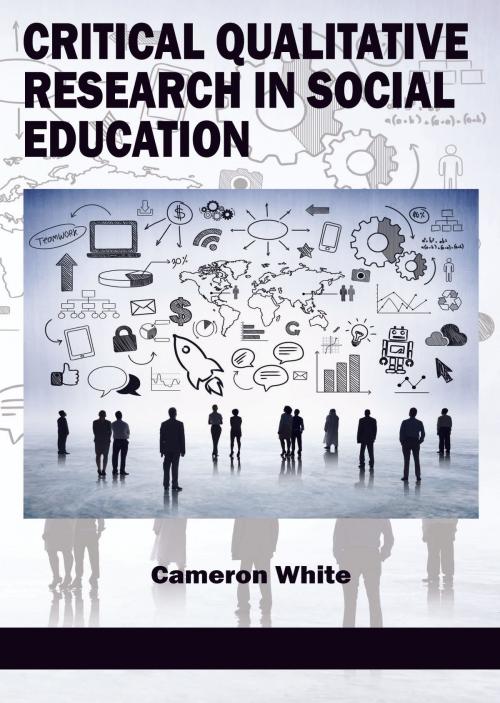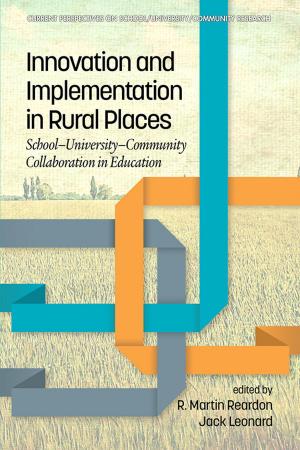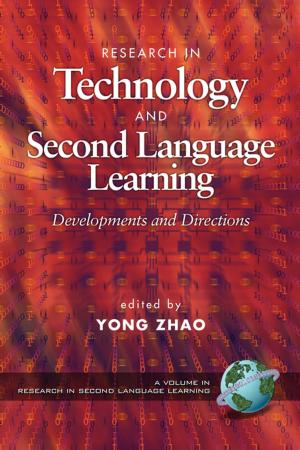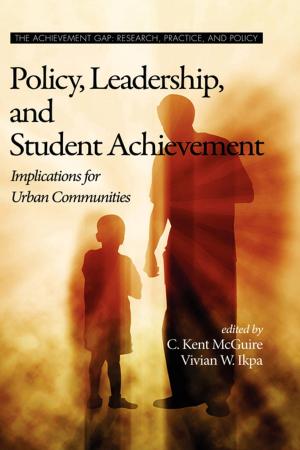Critical Qualitative Research in Social Education
Nonfiction, Reference & Language, Education & Teaching, Teaching, Teaching Methods| Author: | ISBN: | 9781681230375 | |
| Publisher: | Information Age Publishing | Publication: | March 1, 2015 |
| Imprint: | Information Age Publishing | Language: | English |
| Author: | |
| ISBN: | 9781681230375 |
| Publisher: | Information Age Publishing |
| Publication: | March 1, 2015 |
| Imprint: | Information Age Publishing |
| Language: | English |
Critical qualitative research informs social education through a lens that ensures the investigation of issues in education tied to power and privilege, ultimately leading to advocacy and activism. The concept of critical is increasingly challenged in this age of neoliberal reform; nevertheless, critical implies questioning, investigating and challenging in terms of equity and social justice, leading to critical consciousness (Freire, 1970). While we resist defining social education, as hopefully these ideas / concepts are fluid, the idea stems from a continual analysis and synthesis of critical theory/ critical pedagogy, media and cultural studies, social reconstruction / social justice, and social studies education framed by culturally responsive pedagogy. A social education take on critical qualitative research thus suggests multiple truths and perspectives and focuses on questions rather than answers. While many have written on qualitative educational research and some have attempted to integrate critical pedagogy and qualitative research, few have explored the specific idea of social education and critical qualitative research. A major issue is that social education claims that there are no set procedures, scripted approaches, or narrow definitions as to the possibilities of research endeavors. Social education researchers make the process and investigation their own and adapt questions, procedures, methods, and strategies throughout the experience. This reflects an ever changing criticality in the bricolage of the research (Steinberg, 2011). Critical qualitative research and social education are vital for the world of the 21st century. The onslaught of neoliberalism, corporatization, standardization, testing, and the continuing attack on public schools and educators necessitate critical approaches to teaching and learning along with critical qualitative research in social education. Ongoing issues with equity and social justice tied to race, ethnicity, class, orientation, age, and ability linking to schooling, education, teaching and learning must be addressed. The struggle between unbridled capitalism and democracy warrant these investigations in the 21st century, hopefully leading to advocacy and activism.
Critical qualitative research informs social education through a lens that ensures the investigation of issues in education tied to power and privilege, ultimately leading to advocacy and activism. The concept of critical is increasingly challenged in this age of neoliberal reform; nevertheless, critical implies questioning, investigating and challenging in terms of equity and social justice, leading to critical consciousness (Freire, 1970). While we resist defining social education, as hopefully these ideas / concepts are fluid, the idea stems from a continual analysis and synthesis of critical theory/ critical pedagogy, media and cultural studies, social reconstruction / social justice, and social studies education framed by culturally responsive pedagogy. A social education take on critical qualitative research thus suggests multiple truths and perspectives and focuses on questions rather than answers. While many have written on qualitative educational research and some have attempted to integrate critical pedagogy and qualitative research, few have explored the specific idea of social education and critical qualitative research. A major issue is that social education claims that there are no set procedures, scripted approaches, or narrow definitions as to the possibilities of research endeavors. Social education researchers make the process and investigation their own and adapt questions, procedures, methods, and strategies throughout the experience. This reflects an ever changing criticality in the bricolage of the research (Steinberg, 2011). Critical qualitative research and social education are vital for the world of the 21st century. The onslaught of neoliberalism, corporatization, standardization, testing, and the continuing attack on public schools and educators necessitate critical approaches to teaching and learning along with critical qualitative research in social education. Ongoing issues with equity and social justice tied to race, ethnicity, class, orientation, age, and ability linking to schooling, education, teaching and learning must be addressed. The struggle between unbridled capitalism and democracy warrant these investigations in the 21st century, hopefully leading to advocacy and activism.















